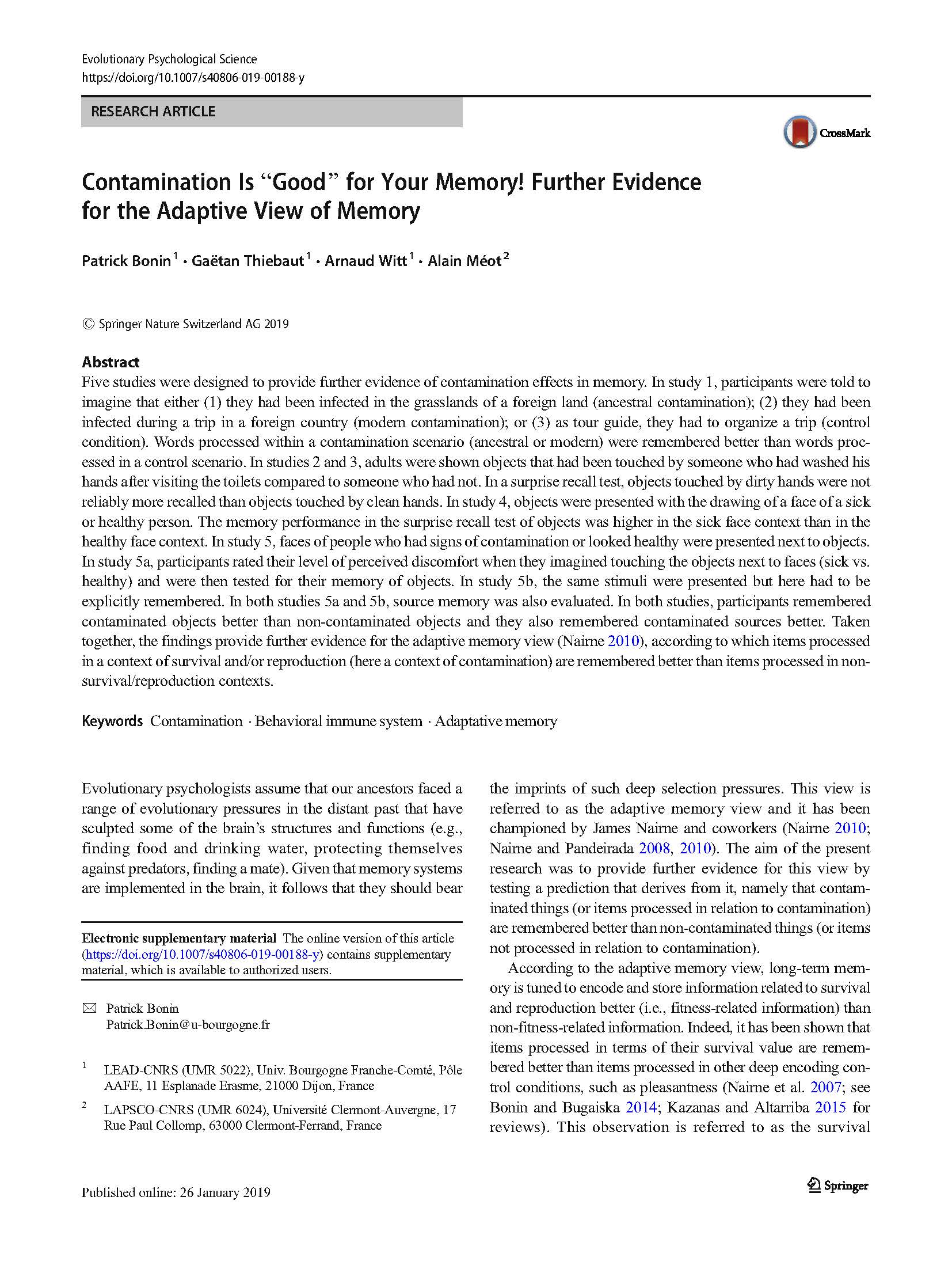Five studies were designed to provide further evidence of contamination effects in memory. In study 1, participants were told to imagine that either (1) they had been infected in the grasslands of a foreign land (ancestral contamination); (2) they had been infected during a trip in a foreign country (modern contamination); or (3) as tour guide, they had to organize a trip (control condition). Words processed within a contamination scenario (ancestral or modern) were remembered better than words processed in a control scenario. In studies 2 and 3, adults were shown objects that had been touched by someone who had washed his hands after visiting the toilets compared to someone who had not. In a surprise recall test, objects touched by dirty hands were not reliably more recalled than objects touched by clean hands. In study 4, objects were presented with the drawing of a face of a sick or healthy person. The memory performance in the surprise recall test of objects was higher in the sick face context than in the healthy face context. In study 5, faces of people who had signs of contamination or looked healthy were presented next to objects. In study 5a, participants rated their level of perceived discomfort when they imagined touching the objects next to faces (sick vs. healthy) and were then tested for their memory of objects. In study 5b, the same stimuli were presented but here had to be explicitly remembered. In both studies 5a and 5b, source memory was also evaluated. In both studies, participants remembered contaminated objects better than non-contaminated objects and they also remembered contaminated sources better. Taken together, the findings provide further evidence for the adaptive memory view (Nairne 2010), according to which items processed in a context of survival and/or reproduction (here a context of contamination) are remembered better than items processed in nonsurvival/reproduction contexts.
Contamination is “good” for your memory! Further evidence for the adaptive view of memory
